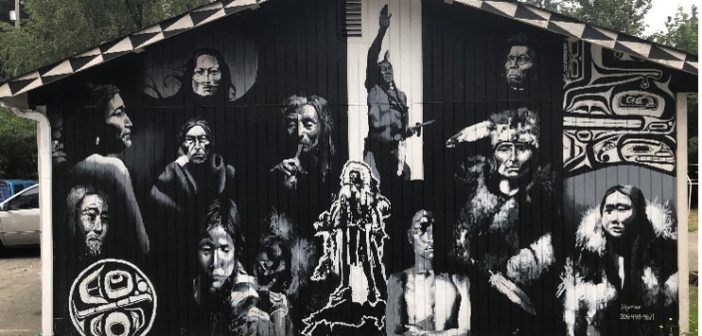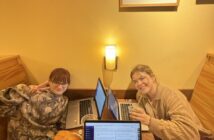By Mariana Navarrete, Arts & Culture Editor
Florida Indigenous Rights Environmental Equality (FIREE) is a group of people based in Florida that are motivated to bring awareness to issues facing the Indigenous Peoples from North, Meso and South American regions. They are unified for the civil and humane treatment of the Indigenous Peoples and protection of resources in Florida, the United States, and the world.
“The Environmental Equality part has to do with that we, as Indigenous People, see the plants, the soil, the water, the animals, as having equal rights to the humans,” Alicia Norris, co-founder of FIREE, said. “We do not see them as resources that we deplete.”
FIREE honors all human cultures and living species as equally important on Mother Earth with a bio-centrist approach.
Norris co-founded FIREE in 2016 during the standoff against the Dakota Access Pipeline.
“The media was not covering it, so the people advocating for its closure reached out to all over the world for help. I made rallies, ceremonies in my backyard, promoted education about the issue and created awareness as much as I could with a group of people,” Norris said. “The pipeline was going to be underneath the river and that was going to poison water, fish, animal and river life.”
Norris grew up in Sarasota and was adopted by her mother’s family. Her family kept the fact that her father had Indigenous blood a secret and was told she was Italian with Scottish and Irish background from her mother’s side.
When Norris was 18, she got the opportunity to meet her father who has Onondaga and Oneida ancestry.
“I did not grow up with my cultural tradition. I did not grow up in a reservation. I grew up feeling out of place, that I did not belong anywhere, and I felt there was something wrong with me because I thought about the world differently since I was a kid,” Norris reflected.
Native Americans faced centuries of persecution and discrimination, including losing their land, resources, and being forced onto reservations that lacked the soil and natural resources needed to build and sustain their communities. This is still happening now.
“In [Tampa], the genocidal model was pretty successful. Most of the Tocobaga are gone, or they assimilated into the Seminole, or other tribes,” said Norris. “The Seminoles were pushed into the Everglades.”
Norris’ great-grandfather walked out of the reservation and advised Norris’ father to hide their Native American heritage to prevent persecution.
“People say we are animals. I thought animals were wonderful and equal to us. I did not even think that was a derogative thing,” said Norris. “I thought it was good, because animals are good; they teach us how to be strong, have boundaries, have patience.”
FIREE honors the connectedness in life with a focus on the four elements of Earth, wind, fire, and water. They are committed to protecting the rights of nature, ecosystems, and Indigenous People.
“If the government and educational systems are going impose that capitalist colonial way of being, they need to also present another way of being,” Norris argued. “Let the native people of this land present their way of traditions and ceremony of waking up every morning with a heart of thankfulness, a heart of respect and reverence for all living entities.”
On a small scale, being respectful of all living entities could be as simple as not throwing trash on the ground.
“Would you throw garbage on your mother? No. Then, do not throw garbage at your mother,” said Norris. “The Earth is our mother.”
FIREE operates with the key belief that people are all connected.
“The world would operate in a much more place of unity, instead of competition and fear if we could incorporate these Indigenous teachings within formative years in school. We could shift these dynamics that are happening of a lack of respect of our resources,” Norris said. “I hate the word of ‘resource,’ really, because that make it sound as something we must use.”
The United Nations Environmental Program claims that Indigenous People occupy one third of the world’s land, which they have managed or occupied in a traditional way. The word ‘traditional’ refers to a knowledge that stems from centuries-old observations and interactions with nature.
“I tell people, if we were just living traditionally according to Indigenous ways, we wouldn’t have all these problems of climate change, extinction of animals, pollution and future shortages on resources,” Norris said.
There are small things you can start doing to live accordingly to Indigenous ways.
“For example, there is no recycling program within St. Petersburg’s corporations. When I used to work in an office, I had [a]recycling bin for everyone and in the end of the week, I would take all, put it my truck and take it in my own residential building that did have a recycling program,” Norris said. “Maybe it didn’t make a big difference, but I know I was doing what I could in my little bubble, my little world.”
FIREE works to bring awareness of the effects non-renewable energy has in local communities. Those interested can find information about pipeline projects, water pollution concerns, habitat destruction and climate change issues on their website FIREE.org.
Indigenous People are not a thing of the past– to follow their teachings and ways of living can be one of the many little things we can do to honor them.





